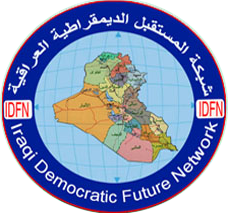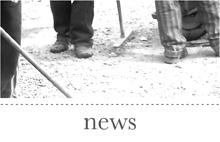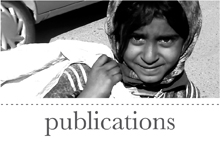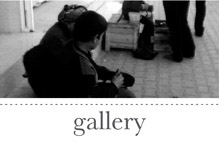The Iraqi Democratic Future Network (IDFN) is a network of 16 Iraqi civil society organisations. It was created in 2004 to foster cooperation for building a more democratic Iraq. IDFN stands for human rights, democracy, social justice and a secular, independent and united Iraq.
Members of the IDFN
Assur Banipal is an Assyrian Chaldean cultural and social organization established in 1988 for the purpose of encouraging the culture and arts of the Assyrian Chaldean people (a Christian linguistic/ethnic minority) and reinforcing their relationship with other cultures. Among other activities, the organization provides scholarships, sponsors courses, publishes a magazine and holds annual cultural and arts festivals.
The General Union of Students in Iraq is a student organization originally established in 1948, which all but disappeared for twenty-five years. It was able to open a Baghdad Office in May 2003 and has since established branches in all of Iraq’s governorates. In August 2003 it was elected as the coordinating organization for Iraq’s 40 student organizations, a position it continues to hold.
Iraqi Assembly for Supporting the Families of Martyrs and the Disappeared is comprised of the widows of the Iran/Iraq War, the Saddam Hussein regime, the First Gulf War, the Second Gulf War and the American Occupation.
The Iraqi Democratic Youth Federation was established in 1951 but disappeared under the Saddam Hussein regime. It was revived in 2003 and is active throughout Iraq. It works with Iraqi youth through the organization of football leagues, cultural events, musical groups, etc.
The Iraqi Federation of Trade Unions is a trade union organization originally established in 1925. Although it was forced to work underground in Iraq for much of its history, including the past twenty-five years, it maintained contact with the International Labour Organization. It was able to freely elect its first Executive Committee and open its Baghdad Office in May 2003. It nominally represents about 400,000 members and has elected Committees in 6 of Iraq’s 9 governorates. It maintains a very close working relationship with the Kurdish Federation of Trade Unions and is the Iraqi representative of the International Confederation of Free Trade Unions (ICFTU).
The Iraqi Kurdistan NGO Network (IKKN) was established in Northern Iraq in 1991. It is a network of 75 Arab and Kurdish NGOs registered in Iraqi Kurdistan (including some Arab groups which began working in Northern Iraq as exiles between the two Gulf Wars). IKKN works on rehabilitation, reconstruction and social development programs to develop and enhance civil society.
The Iraqi Rising Women was established in April 2003 to educate women about women’s rights and to bring women together into a pluralist, national women’s movement. Its focus is urban women from low socio-economic backgrounds.
The Iraqi Women’s League was originally established in 1952 but was based in Northern Iraq between 1991 and 2003. It opened its Baghdad Office after the fall of the Saddam Hussein regime and currently has about 800 members in Baghdad and an additional 400 members in other governorates. It operates modest medical and legal clinics, and deals with a variety of other woman-related issues. In cooperation with Tammuz, it has also implemented an income generation project for impoverished women.
The National Association for the Defence of Human Rights in Iraq was established in May 2003 and works on human rights issues such as the “disappeared” under the Saddam Hussein regime, the location of mass graves, arrests and shootings by the US military, and public dialogue campaigns about depleted uranium. In cooperation with Tammuz, it has opened a Centre for Victims of Torture. It currently has 20 branches throughout Iraq.
The Organization of Tammuz for Social Development was established under the name of Al Wafaa Association in Northern Iraq in 1997. It opened its Baghdad Office in May 2003 and currently maintains regional offices in Erbil in Northern Iraq and in Basra in Southern Iraq as well. It works on community-based medical, educational, health, vocational training, public dialogue and research and assessment programs. During the last election, Tammuz organized 5,600 volunteer election monitors who were active in observing polling stations throughout the country and reporting violations of the Election Law. It is affiliated to the Arab NGO Network, the Mine Removal Organization and IKNN. It has worked in partnership with international organizations such as: Frederich Ebert (Germany); Norwegian People’s Aid (Norway); Olaf Palme and ABF (Sweden); Save the Children Fund and Prisoner of Conscience Appeal Fund (UK); Bridge to Baghdad (Italy); CARE (Holland) and Organization for Kids, Counterpart and I-Help (US).
People’s Rights for Culture and Media (Al Nas) is an NGO that works with the Annas Radio Station to try to find new ways to educate and encourage freedom of expression through the radio.
Sabia Mindanian Society joined the network in August 2006. It is an established organization representing one of the Christian ethnic/linguistic minority cultures in Iraq and has been an active member of the Council of Minorities organized by Assur Banipal.
The Nenurta Group for the Arts, which was established in August 2003, is a new organisation of young artists and performers seeking to maintain a secular and social oriented culture in Iraq. In particular, it encourages and sponsors young artists and modern art forms– activities so far include theatre, music, arts and cinema presentations, festivals and forums.
Iraqi Organization for Athletic Development is an NGO that seeks to promote secular and humanitarian values through sport. The group mobilizes adult and young adult volunteers, and assists them in the organization of leisure and competitive sports for children and youth on a non-sectarian basis and with due attention to the provision of sporting opportunities for girls.
Al-Rafdain foundation for Agricultural development.
The Chaldo-Assyrian Organisation for the Arts.
For more information visit http://idfnetwork.com













